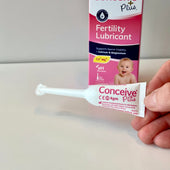Study shows promise of preserving fertility in boys with cancer
Study shows promise of preserving fertility in boys with cancer.
Scientists have moved a step closer to being able to preserve fertility in young boys who undergo chemotherapy and radiation treatments for cancer. The new research, published in Fertility and Sterility, the journal of the American Society for Reproductive Medicine, addresses the safety of an option scientists are developing for boys who aren't sexually mature and cannot bank sperm.
Scientists aim to freeze a sample of the boys' testicular tissue so that when they reach adulthood, spermatogonial stem cells (SSCs) found in the tissue can be reproduced and transplanted back into the patients. These cells are responsible for sperm production throughout adulthood.
"Our study addressed an important safety issue – whether cancer cells that might be present in testicular tissue samples can survive the process to replicate the sperm-producing stem cells," said lead author Hooman Sadri-Ardekani, M.D., Ph.D., an instructor in urology and regenerative medicine at Wake Forest Baptist Medical Center.
"This is an important consideration because of the potential to re-introduce cancer into the patient," he said. "The research, which involved one of the most common childhood cancers, shows that the cancer cells were eliminated. Based on these findings, we recommend that all boys with cancer be offered the option of storing testicular tissue for possible future clinical use.
" Sadri-Ardekani performed the work with researchers at the University of Amsterdam and Avicenna Research Institute in Tehran, Iran, before joining Wake Forest Baptist.
Cancers that can have a high risk of infertility, depending on the treatment, are certain leukemias, Hodgkin's disease, brain tumors and bone cancer. Because of the high survival rates of childhood cancer – close to 80 percent – more cancer patients than ever are reaching adulthood and many face fertility problems.
The current research involved acute lymphoblastic leukemia (ALL) cells, a common type of childhood cancer. Previous research had shown that up to 30 percent of boys with ALL had cancer cells in their testicular tissue.
Several earlier studies have attempted to eliminate cancer cells from biopsy tissue, but they showed contradictory results. The approach of Sadri-Ardekani and colleagues was to investigate whether cancer cells would survive the laboratory protocol they had developed to reproduce SSCs from a small tissue biopsy. This process multiplies the original SSCs by 18,000-fold so there are enough cells to transplant back into the patient when he reaches adulthood.
For the research, ALL cells were taken from three patients' bone marrow. The team then put the ALL cells alone, and ALL cells combined with testicular cells, through the cell-reproduction process.
Even when ALL cells made up 40 percent of the cell mixture being cultured, they were entirely eliminated in 26 days of culture.
"This pilot study showed that the culture system not only allowed for efficient propagation of sperm stem cells, but also eliminated ALL cells," said Sadri-Ardekani. SSC transplantation has not yet been attempted in humans, but has been performed successfully in several species of animals, including monkeys, said Sadri-Ardekani.
He noted that before physicians and scientists begin offering SSC transplantation in patients, additional research will be needed, including whether other types of leukemiacells will also be eliminated in the cell-propagation process.













